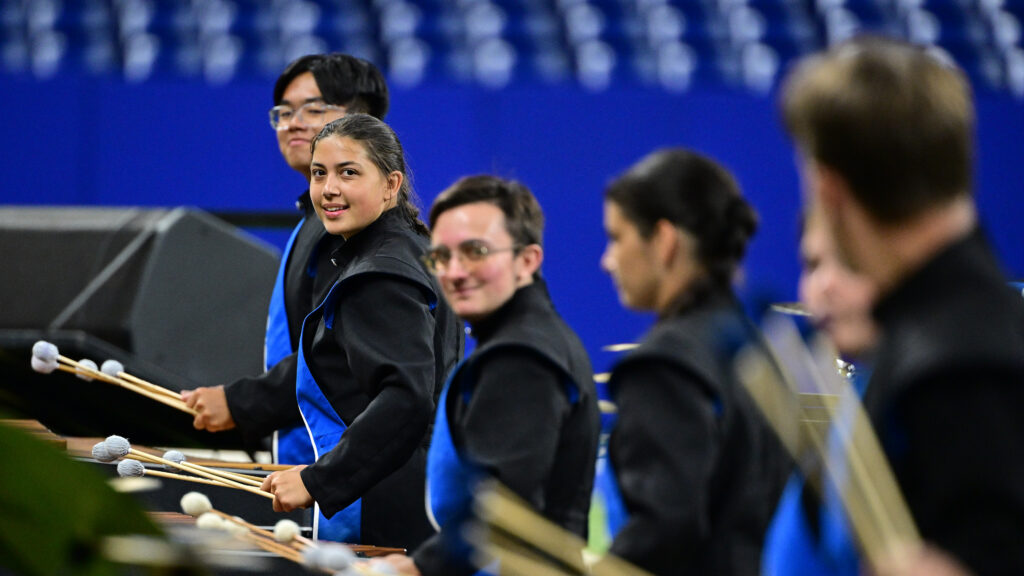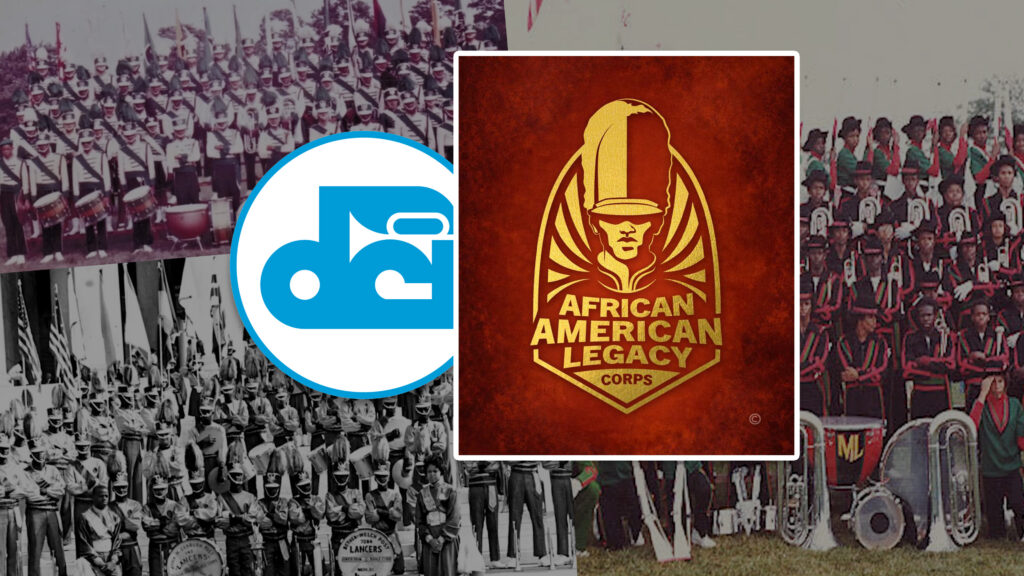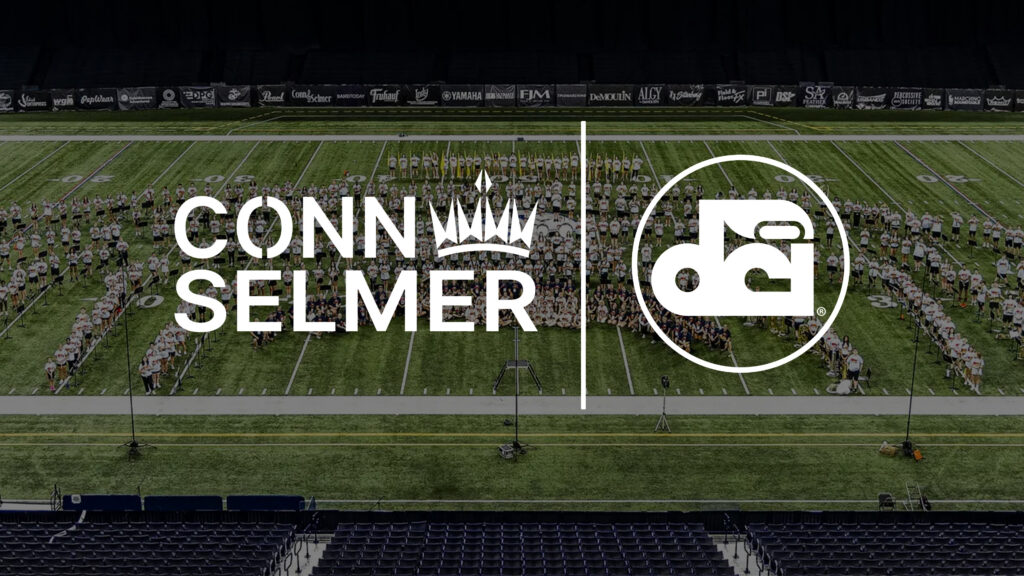The following is an interview with Tom Blair, executive producer of Drum Corps International’s PBS program, and Dan Acheson, executive director of Drum Corps International.The format of this year’s PBS program has changed from past years. Blair said the planning for this change began two years ago when he met with Dan Acheson, Blue Devils executive director Dave Gibbs and some others to discuss how the broadcast could have a broader appeal.Rather than present a live broadcast of the finals competition, which is what has aired in years past, a decision was made that the program would center on the entire drum corps experience. Specifically, the program follows the drum corps trials and tribulations of three different members of three different corps. The program will also feature excerpts from the performances of the top-scoring corps.DCI.org: So Dan, I guess the first and most obvious question is, why the radical change in the program format?Dan Acheson : It is important for Drum Corps International to tell more of the story of how these incredible young people get to the magnificence they display during their final performance rather than just show the performance alone without explanation. And, with significant research conducted this past winter into the world of television we concluded the new format might be more appealing to a non-drum corps audience.DCI.org: How do you feel about this change in format, Tom?Tom Blair: We wanted to create something that people not specifically familiar with the drum corps experience could more easily relate to. We’re making the DVD product for the hard-core drum corps guys, for the people who want to see the show from different camera angles, and we’re making the PBS show for my mom, or not familiar with the drum corps experience.DCI.org:How did you go about choosing the subjects for the personal stories segments? Tom Blair:I wanted to try to present a broad picture of the types of individuals that get involved in drum corps. With (Cavalier snare rookie) Derek Weber, I wanted to showcase the rookie who has wanted to be in the Cavaliers his whole life. With Jessica Allen, (the Blue Devils’ guard captain who aged out after finals), I wanted to showcase someone who had committed five years to drum corps and the Blue Devils and who was looking to her last finals performance. With Rick Brown (Cadets trumpet player), we wanted to show the level of commitment that’s required to get through the mid-season grind. Rick had an injury. He was only out for one performance – but he felt terrible about missing it. He only missed one day, but he felt he was letting his fellow performers down. It was a remarkable display of dedication.DCI.org: Dan, how does what Tom described better serve Drum Corps International’s marketing mission?Dan Acheson:Tom, and the outstanding team he assembled, has successfully captured the essence of the drum corps experience through the stories of these three performers from varied backgrounds and different corps. By telling their stories, our reach to the young people who may be interested in a drum corps experience makes it crystal clear what the true value that experience may bring. We have been keenly focused on increasing awareness among the age group of 13 to 22, and I believe this year’s program hits the mark all the way around.DCI.org:Explain how the process for putting this broadcast together works. Do you sit down with a group of people and start discussing it in, say, September of the year prior to the broadcast?Tom Blair:This year’s program is unusual because Dan Acheson and I and others started talking about format change two years ago. It was me, Dan, (Blue Devils director) Dave Gibbs, Mike Zapanta, and a senior producer from NBC, David Michaels. We looked at what we had, but decided that it was really “inside.” We decided that a better use of the PBS medium would be to create a program that had a more broad appeal. While I’ve always been an advocate of doing the show live, to do what we wanted to do (and appeal to a bigger audience by presenting the entire drum corps experience), we just couldn’t do it live. This needed to be a taped show. The creation of DVDs helped make the decision – I had been trying to compromise between appealing to a hard-core drum corps fan and someone who casually stumbled across the PBS broadcast. The DVD is so perfect for a drum corps fan, I thought this format was a better one to make use of the PBS medium. Drum corps fans can watch the DVD to convey the emotional experience of being a DCI finalist.DCI.org: Dan, long-time fans who couldn’t attend the biggest event of the year may be frustrated with Drum Corps International’s decision not to broadcast live from the World Championships. Not to be cynical about it, but is this really all about selling more DVD’s? Dan Acheson: Well, I realize from the outside looking in it may appear to be about selling more products, it really isn’t. It really comes down to providing a television program that has wider appeal than anything we’ve done in the past. Drum corps fans, and I count myself among them, will sit through corps after corps performance on video, but with today’s sound-bite mentality in television programming, we do not capture the attention of the casual observer who may have a fifth-grade trumpet player at home. The mix of the performance, message, the experience and the values is important. The new program format affords us the opportunity to feature all of the finalists, instead of just five as in the past three years. Lastly, I think corps fans will embrace the masterful presentation Tom has put together on behalf of drum corps.Drum Corps International:Tom, how many years have you worked on the broadcast? Tom Blair: In 1984 I started working on the show, doing some editing for Drum Corps International. I produced and directed the broadcast from 1987 to 1994, then again from 1999 until now.DCI.org: Obviously Drum Corps International is pleased with Tom’s work because he is still under contract, but why Tom and not one of the hundreds of production companies that exist out there?Dan Acheson: Beyond Tom’s award winning achievements in television, I have yet to meet anyone who has his passion. He has a love for the drum corps activity that shows in all that he brings to the screen. His work ethic and attention to detail has made our programs and our audio and video products the best they can possibly be with modest resources. We are very grateful to have an association with such a quality television producer and passionate drum corps guy. Please don’t tell him I said any of this. DCI.org: Tom, how has the TV program evolved since you’ve been working on it? Tom Blair: Technically I think we started broadcasting in Surround Sound in 1989, years ahead of the curve. I’ve always been fortunate in that I have a lot of friends who work in the business, and they’ve helped me to be lots more technically advanced with this particular broadcast. Drum Corps International benefits from my connections, and from audio and visually bringing the highest quality to the broadcast. The broadcast has gone from being a “record” (of the championships) to being the highly produced program that we’re putting on the air this year.Dan Acheson:I’d like to add something about some of honors our programming has received. In 2000 the program was awarded the Gold Pinnacle award by the International Festival Events Association and was awarded the Silver Pinnacle in 2001. The competition included broadcasts of the Kentucky Derby, the Rose Bowl parade and various other event programming. Indeed a significant achievement.DCI.org:How big of a staff works on the program? Tom Blair: There are 65 people working with us during week of championships. Lots of others work on it for months afterward.Dan Acheson: I am always amazed when I see all the hustle and bustle around the television truck during championship week. I always joke that I know it is an important event when the TV guys show up. Tom orchestrates the TV crew in the same masterful way he calls the camera angles when he directs the program. DCI.org:Tom, what other television broadcasts have you worked on? Tom Blair: I’ve done a lot of different types of shows, from Oprah Winfrey to directing the coverage of a symphony orchestra. I’ve also been involved with broadcasting the World Series, the Super Bowl and other significant sporting events. My real passion is the performing arts, but I enjoy doing high-end live TV. I ‘m not much of a sports guy, but I love live TV. Editor’s note: Blair is currently in Flushing Meadows, N.Y., broadcasting the U.S. Open tennis tournament. DCI.org: Did you march? How did you get involved with drum corps? Tom Blair: I started doing drum corps when I was 14, with a drum and baton corps in Michigan. The Taylor Troubadors. I played bass drum in the Glassmen, in a shortened season in 1976. In 1978 I joined the Cavaliers, played snare drum and was rookie of the year. I marched in 1978, 1979 and 1980 with the Cavaliers. I started judging in 1981, as well as teaching, writing and arranging. I taught the Cavaliers in 1984 and 1985. I was program coordinator of the Bandettes from 1982 to 1989.To order The Legacy Collection of historical Drum Corps International DVDs.
- Marching Music's Major LeagueTM





